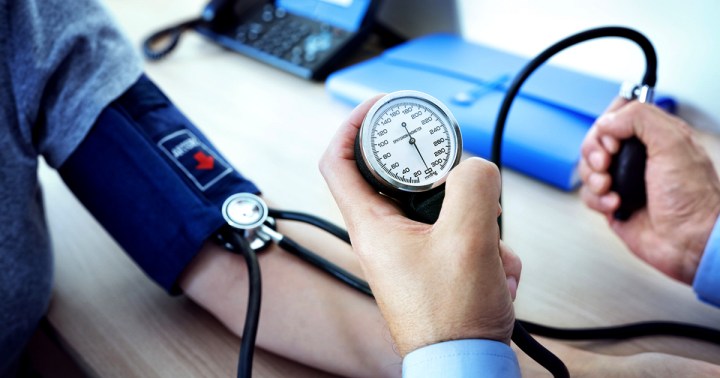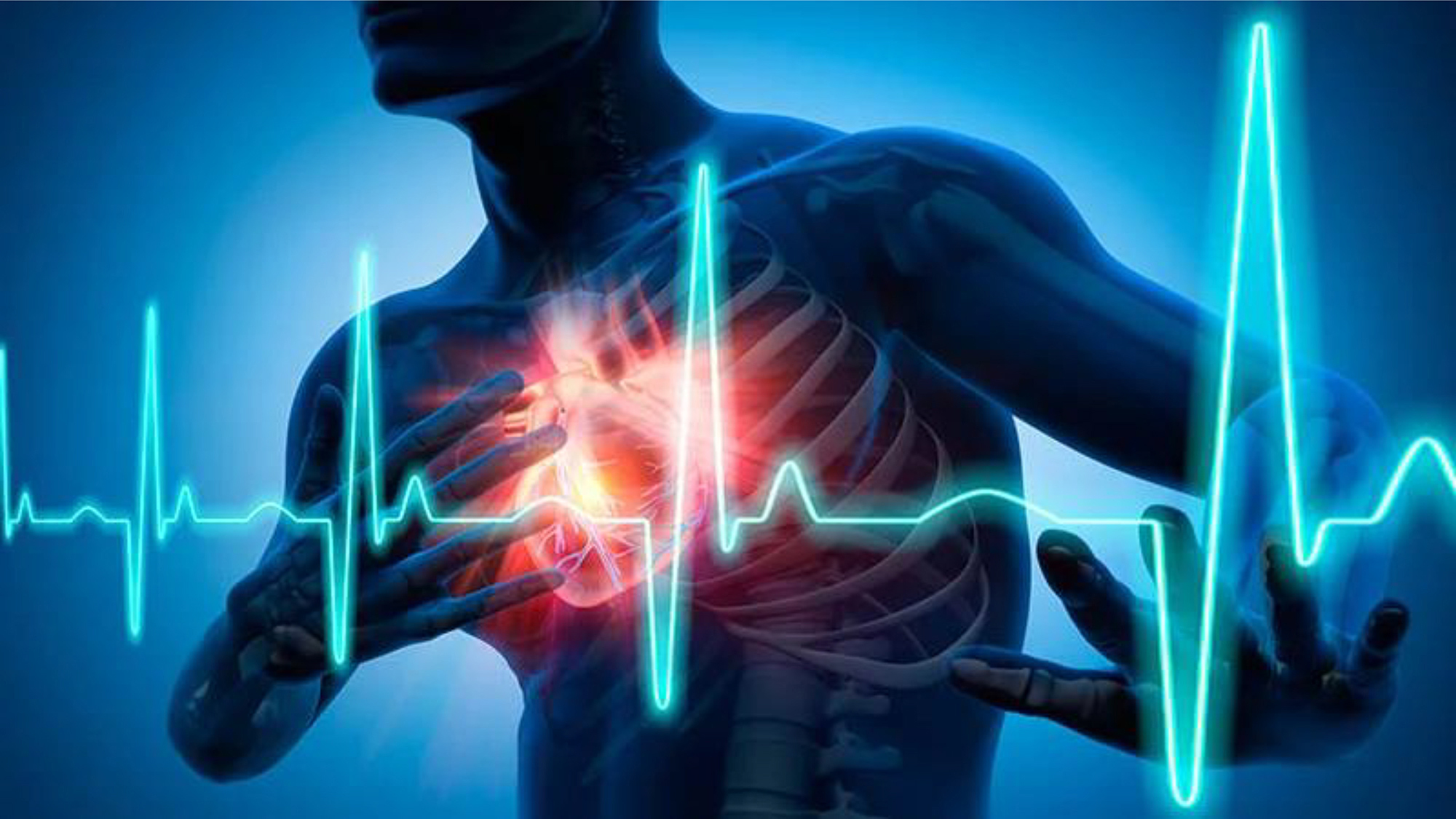
DEADLY DIET
Studies flagging raised risk of heart attack from ultra-processed foods prompts warning of ‘tidal wave of ill health’

At the world’s biggest annual conference on heart health, new research has been presented linking a greatly increased risk of high blood pressure, heart attack and stroke to consistent eating of ultra-processed foods.
This should be “a wake-up call to governments,” says Henry Dimbleby, the UK’s former food “tsar”, warning of “a tidal wave of ill health” as a result of people’s increasing dependence on ultra-processed foods (UPF).
Dimbleby was commenting on two landmark studies presented at the European Society of Cardiology’s 2023 meeting held in Amsterdam from 25 to 28 August, where more than 4,000 scientists, doctors and researchers heard groundbreaking new evidence that ultra-processed foods drive high blood pressure and consequently greatly increased risks of heart attack and stroke.
The first study, from the University of Sydney, followed 10,000 women for 15 years, and found that those who ate the largest proportion of ultra-processed foods over time had a 39% greater likelihood of developing high blood pressure than the women with the lowest consumption of UPF. High blood pressure significantly increases the risk of heart attacks and strokes.
Since 2000, South Africa’s prevalence of hypertension has increased from 25% to 40%, with low rates of diagnosis, treatment and control.
The second study, from Fourth Military Medical University in Xi’an, China, examined the food consumption of 325,000 women and men (analysing other studies already completed), and showed that the people who ate the most ultra-processed foods were 24% more likely to experience some form of cardiovascular “event” such as heart attack or stroke. This “meta-study” also found that for every 10% increase in daily calorie consumption of UPF, there was a 6% increased risk of heart disease, the Guardian reported.
In the UK and the US, more than half of the populations’ total energy intake is made up of ultra-processed foods (55% in the US, 57% in the UK). There is no research yet available on the levels of UPF consumption in South Africa, but anecdotally it is clear that sugary drinks, flavoured chips, salty snacks and fast foods are cheap, easily available, relentlessly marketed and widely consumed – and our spiralling (upwards) rates of child and adult obesity, type 2 diabetes and hypertension (high blood pressure) would corroborate this.
Since 2000, South Africa’s prevalence of hypertension has increased from 25% to 40%, with low rates of diagnosis, treatment and control – and even lower rates among people with low incomes, fewer years of education, and those who receive healthcare in the public health system, according to research, published in the British Medical Journal, in 2022 by a team including Wits University’s Agnes Erzse and Karen Hofman, and the University of Cape Town’s Brian Rayner.
Not just about sugar and salt
Ultra-processed foods are food-like products high in added sugars, salt, unhealthy fats and chemical additives such as stabilisers, emulsifiers, sweeteners and preservatives. These are often easily identifiable – products such as biscuits, “ready meals”, sweetened breakfast cereals, fizzy drinks (including “diet” versions) – that have been stripped of their original structure, texture, colour and taste. One example is the “potato chip” that is not really a chip, but an edible formulation of dehydrated potato, “degerminated” corn flour, wheat starch, salt and artificial flavourings glued together with a mix of vegetable oils and extruded into a chip shape.

In new research presented at the 2023 European Society of Cardiology meeting, a study of 325,000 people provided evidence that for every 10% increase in daily calorie intake from ultra-processed foods, a person has a 6% increased risk of heart disease. The people who ate the most UPF were 24% more likely to experience some form of cardiovascular ‘event’. (Image: Emergency Physicians / Wikipedia)
But the new research is adding to the body of evidence showing that it is not “just” the high levels of less-healthy nutrients such as sugar and salt that are the problem, but the extreme processing methods and additives used to create these products.
Chris van Tulleken, a medical doctor in the UK who a few months ago published a best-selling book called Ultra-Processed People (available in South Africa, soon to be reviewed in these pages), boils down the scientific definition of UPF to this: “If it’s wrapped in plastic and has at least one ingredient that you wouldn’t usually find in a standard home kitchen, it’s UPF. Much of it will be familiar to you as ‘junk food’, but there’s plenty of organic, free-range, ‘ethical’ UPF too, which might be sold as healthy, nutritious, environmentally friendly or useful for weight loss (it’s another rule of thumb that almost every food that comes with a health claim on the packet is a UPF).”
Some of the less-obvious UPF products are often foods that claim to be healthy but are just another form of highly processed ingredients: Protein and energy bars, “plant-based” products, “healthy” breakfast cereals, yoghurts containing colourants, thickeners, artificial sweeteners and preservatives, or supermarket sliced bread (even “whole wheat”) that has a mix of chemicals in it to improve its aroma, texture and shelf life.
Van Tulleken mentions some of the lesser-known impacts of consuming UPF such as the disruption of appetite regulation (UPF makes one eat more of it than one would of other foods), the cause of inflammation in the intestine (which may have long-term knock-on effects on our immune and cardiovascular systems) and the alteration of some hormone levels.
They are exploiting children as an emerging market, so that children develop a lifelong taste or appetite for sugary, salty foods.
Professor Karen Hofman, programme director of the SA MRC Centre for Health Economics and Decision Science at Wits University, told Daily Maverick: “The new data is important and highly relevant in South Africa, where high blood pressure is a ‘silent’ (in the sense it is not diagnosed) and significant killer of women, especially from stroke. This is a gendered epidemic.” The new research also showed that “the marketing of UPFs to children is especially damaging and should be banned”.
Commenting on the findings presented at the Amsterdam cardiology meeting, Van Tulleken reiterated a call for mandatory black warning labels on the packaging of UPF – much like those already in place in Chile and Mexico, and like those currently in draft legislation in South Africa – as well as for the restriction of marketing of UPF (also in South Africa’s new draft legislation).
Read more in Daily Maverick: Draft regulations aim to make warning labels on unhealthy foods mandatory by 2025
Lori Lake, a child rights advocate at the University of Cape Town’s Children’s Institute, emphasised the damages wrought not just by UPF but starting with their marketing: “Many UPFs are packed full of cheap, industrially processed ingredients, designed to be highly addictive with the perfect blend of salt, sugar and fat that keeps us coming back for more, and processed in a way that overrides our bodies’ signals that we’re full and it’s time to stop eating. So, it’s not surprising that our children are eating bowl after bowl of cereal and chips, and that obesity rates are climbing. But taste is only part of the marketing drive.
“What worries me is that so many of these foods are consciously targeted at children as young consumers. So, these foods not only taste good, which is hard enough to resist, they are also marketed with sophisticated marketing campaigns that tap into our fantasies and aspirations for a better life. They are exploiting children as an emerging market, so that children develop a lifelong taste or appetite for sugary, salty foods.”
Daily Maverick has reported frequently (and will continue to) on the growing body of evidence globally on the harms to our health of eating too much ultra-processed food, especially in contributing to obesity which in turn can trigger hypertension, diabetes and cancer. But this is the first time that large-scale, global evidence has homed in on – and put numbers to – the specific risks of heart attack and stroke due to UPF consumption and its effect on high blood pressure.
Wits’s Karen Hofman suggests South Africa goes further than the current draft legislation on food warning labels and marketing and follow Brazil’s example: Recent laws passed in Rio de Janeiro, Brazil’s second-most-populated city, and in the state of São Paulo, ban not just the marketing of UPF but all “ultra-processed products” in all schools. This would be “a good idea” for South Africa, she told Daily Maverick. DM
Disclosure: Adèle Sulcas is a consulting editor to Wits University’s SA MRC Centre for Health Economics and Decision Science, and a writer for Daily Maverick’s “Food Justice” project.





















 Become an Insider
Become an Insider
Are vegan copies of meat products ultra processed? Asking for a friend
Yes, they are! Unless they are made from only minimally-processed ingredients like beans, herbs, spices. But if there is soy, colouring, flavouring, preservative… technically it’s ultra-processed.
I used to work with low income families in Boksburg/Benoni area and so many kids ate instant noodles on a daily basis as well as those awful puffy chips bought from hawkers in big plastic bags. Plus sweet sticky sweets which destroyed their teeth. Better off families would promise their kids McDonalds for good behaviour. Fizzy sweet drinks were the norm. Exercise was the exeption . No chance for a healthy brain and body to develop.
Thank you, DM for including this important research and topic. Keep up the good work.